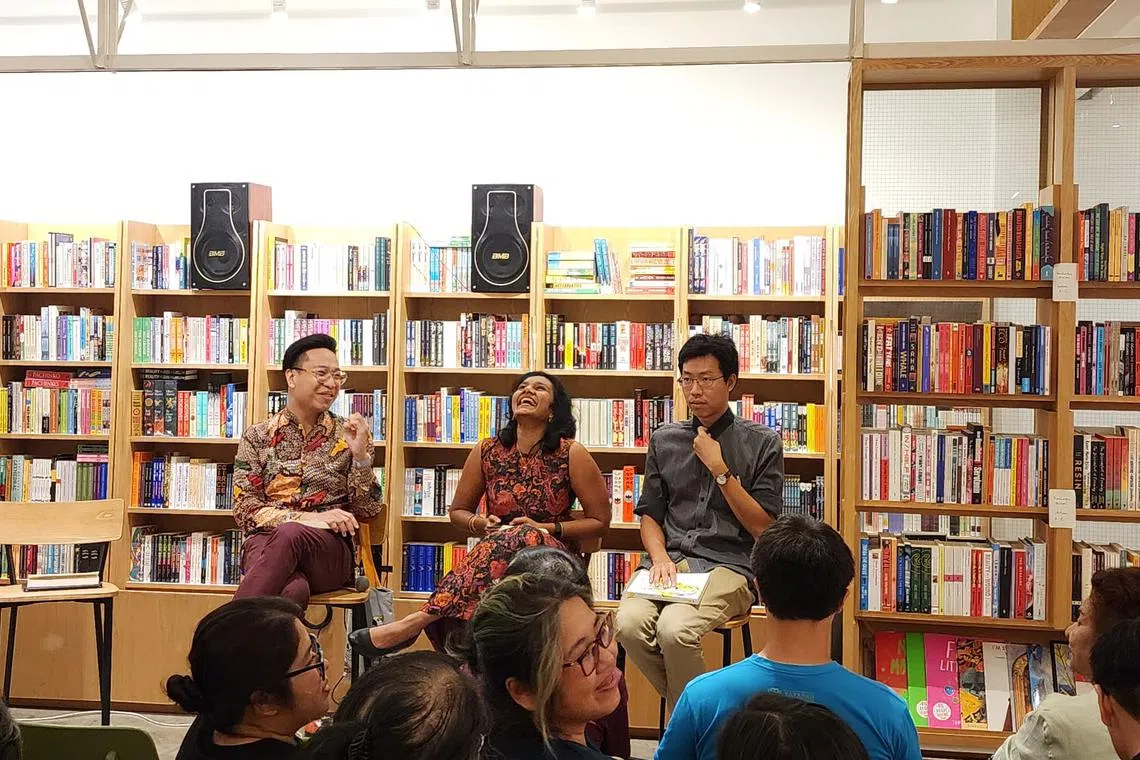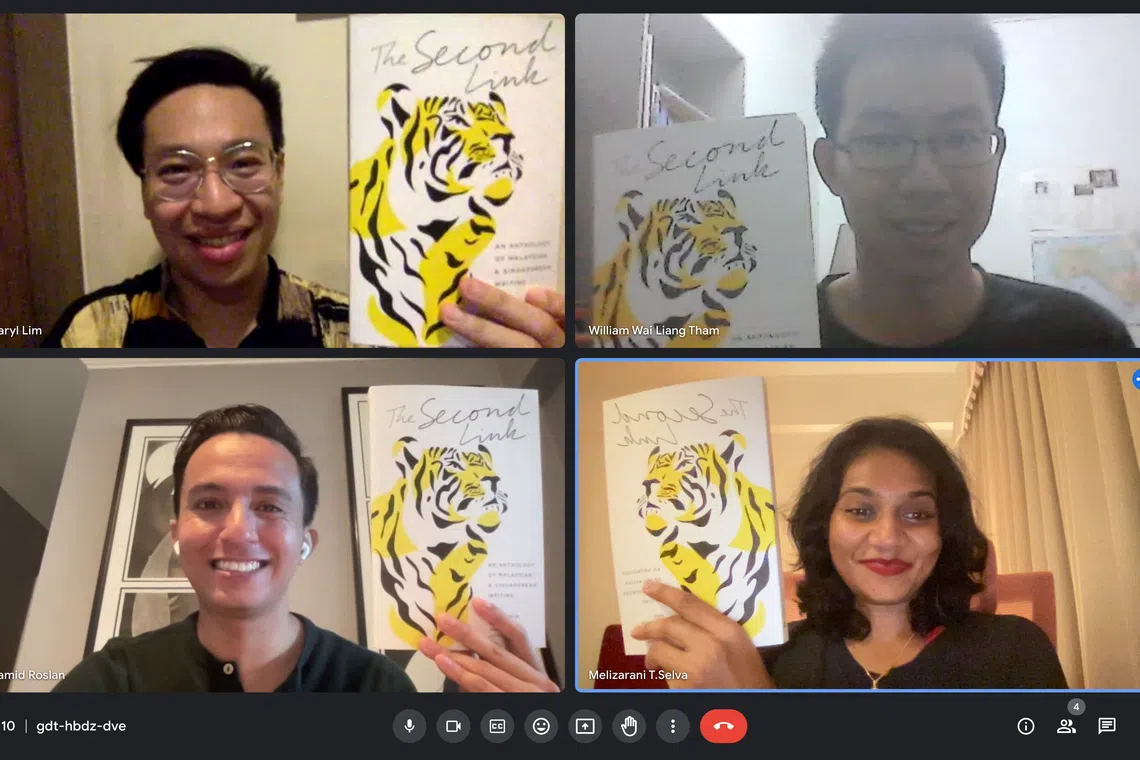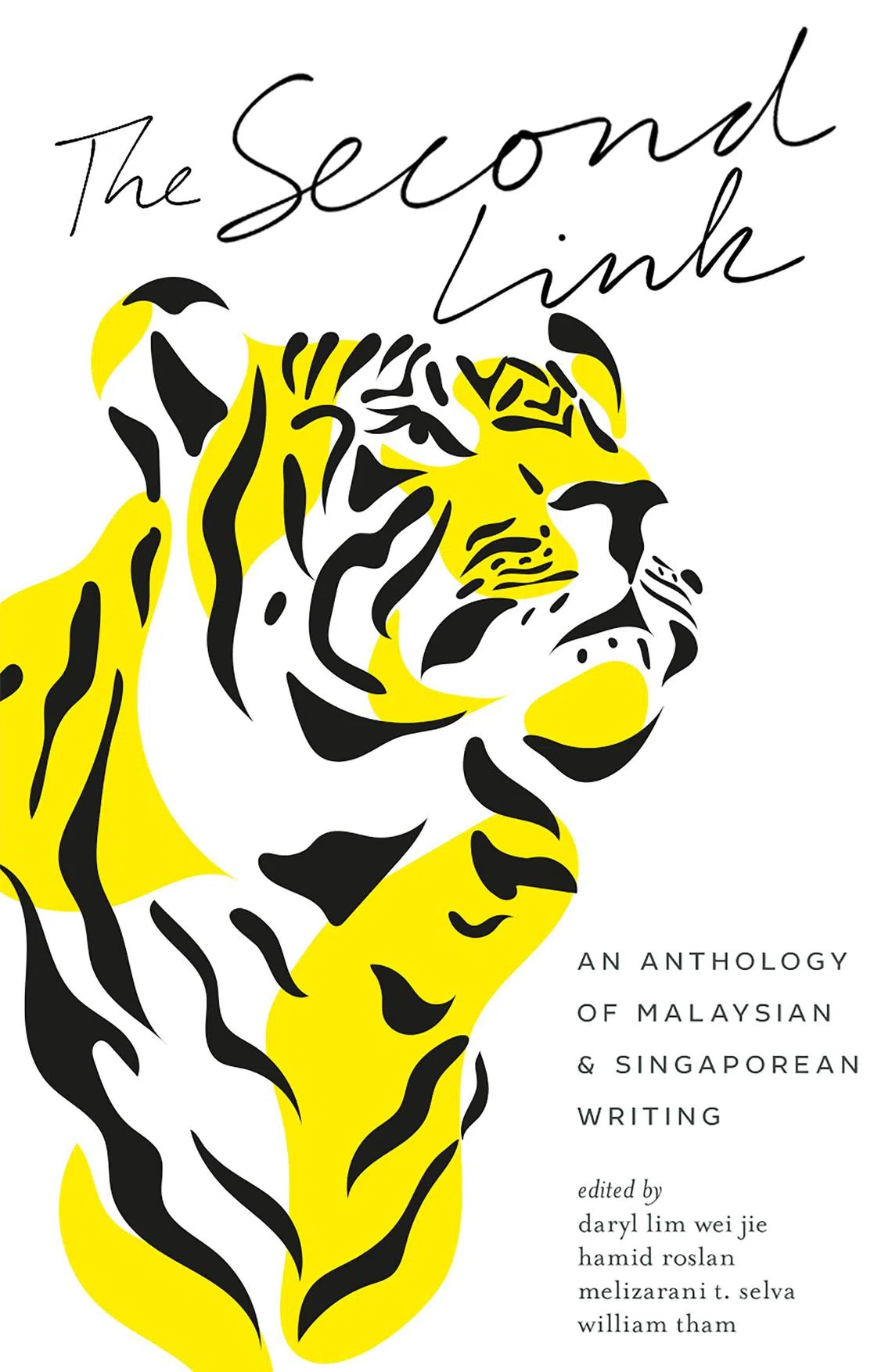Young writers from Singapore and Malaysia look back to 1963 in new anthology The Second Link
Sign up now: Get ST's newsletters delivered to your inbox

Three of The Second Link's editors – (from left) Daryl Lim Wei Jie, Melizarani T. Selva and William Tham – at the Malaysian launch of the book on Sept 16, 2023.
PHOTO: COURTESY OF MARSHALL CAVENDISH
Follow topic:
SINGAPORE – Sept 16 was the 100th birth anniversary of Singapore’s founding prime minister Lee Kuan Yew, but the date marked another significant anniversary: the 60th anniversary of the formation of the Federation of Malaysia.
Singaporean poet Daryl Lim Wei Jie has co-edited a new literary anthology to commemorate the start of a brief union between Singapore, Malaya, Sabah and Sarawak from 1963 to 1965.
The Second Link recalls the shared history of Malaysia and Singapore by bringing together 30 writers from the two nations to reflect on a bygone era which, although neglected, is still considered a “space of possibilities” by Lim.
The 33-year-old laments that there has been little said of this other anniversary from a Singapore perspective, explaining why he dreamt up this book in 2021.
“I had to do it because I felt like no one in Singapore would care enough about it to do it and, as it turns out, no one in Singapore does.”
His fascination with the subject began in 2013, when he encountered a short film by home-grown film-maker Boo Junfeng at the Singapore Biennale, themed If The World Changed.
In Happy And Free, Boo imagines a Singapore that never separated from Malaysia, where Malaysian actress Yeo Yann Yann and Singaporean comedian Hirzi Zulkiflie perform a song commissioned on the occasion of the formation of Malaysia.
“In this film, it is the Malaysian flag that is hung up on the HDB blocks that was the image that captured me,” says Lim. “We evoke 1963 and those two years because they were a space of possibilities, and we wanted to capture a bit of that sense of what could have been.”
Lim approached fellow Singaporean poet Hamid Roslan, 30, and subsequently two Malaysian editors – Singapore-based poet and performer Melizarani T. Selva, 33; and writer William Tham, 31, based in Petaling Jaya – to lend their diverse perspectives to editing the anthology.
The Second Link, in Selva’s words, is “a bizarre act of loving”.
Thrown in the mix are unexpected stories on egg shortages and the last Kristang play, serious essays on the music of merger and biodiversity heritage, as well as experimental poems, a playlet, a visual essay – a commotion of ideas spanning diverse genres.
None of it, she says, will rehash old cliches. “All four of us kept an eye out for any tired tropes we wanted to dodge. I, in particular, was looking at tropes like Singaporeans going to Malaysia to get foot massages, buy groceries and coming back.”
Even when a story dealt with Singaporeans travelling to Johor Bahru for a massage, Selva says it had to stand out as “weird and enjoyable and exciting” – which was how she described Singaporean writer Mohamed Shaker’s story Foot Massage.

The editors of The Second Link are (clockwise, from above left) Daryl Lim Wei Jie, William Tham, Melizarani T. Selva and Hamid Roslan.
PHOTO: COURTESY OF THE SECOND LINK EDITORS
Notably, the team of millennial editors has – not by design, but by sheer serendipity – created an anthology that features an overwhelming majority of writers born after 1963, barring a few contributors such as Malaysian poet Malachi Edwin Vethamani.
Malaysian poet Wong Phui Nam
While The Second Link places itself in the tradition of books like The Second Tongue – a 1976 anthology edited by pioneer Singaporean poet Edwin Thumboo, which also brought together Malaysian and Singaporean writers – the editors realised that younger writers respond to the idea of Singapore-Malaysia relations differently.
Lim explains that “in the first 20 years of separation, a lot of that Singapore-Malaysia relationship was adversarial or existential”, citing water disputes between the two countries.
In contrast, “a lot of younger Singaporeans have been freed of that burden”.
Similarly, Selva says the “Malaysian dream” to move to Singapore is now being tackled by a new generation of writers, who have either moved to Singapore or are questioning if that dream is something they should consider pursuing.
She adds that younger writers from both countries are “freed to the point that they are looking at their parents’ commentary and perspective with a lot of humour”.

The Second Link is a new literary anthology bringing together Singaporean and Malaysian writers to mark the 60th year since the formation of the Federation of Malaysia.
PHOTO: MARSHALL CAVENDISH
Even as young writers are represented in this new book, Selva adds: “I think we are missing even younger writers.”
She says that they might not have realised how Singapore and Malaysia’s historical relationship is directly relevant to them yet.
But she hastens to add: “The book is not complete – it’s joyously incomplete. So there is room for someone to be inspired.”
The Second Link was first launched in Malaysia at independent bookstore Lit Books on Malaysia Day on Sept 16 and in Singapore at the National Library on Saturday, with National University of Singapore Professor Wang Gungwu, an eminent historian, as the guest of honour.
Selva says: “We’ve made work that can exist in both nations and is for both nations, and that is very tough to do.”
The Second Link ($30.24), published by Marshall Cavendish, is available at Amazon SG (
amzn.to/3PU5sTX
) and major bookstores in Singapore and Malaysia.
This article contains affiliate links. If you buy through these links, we may earn a small commission.

